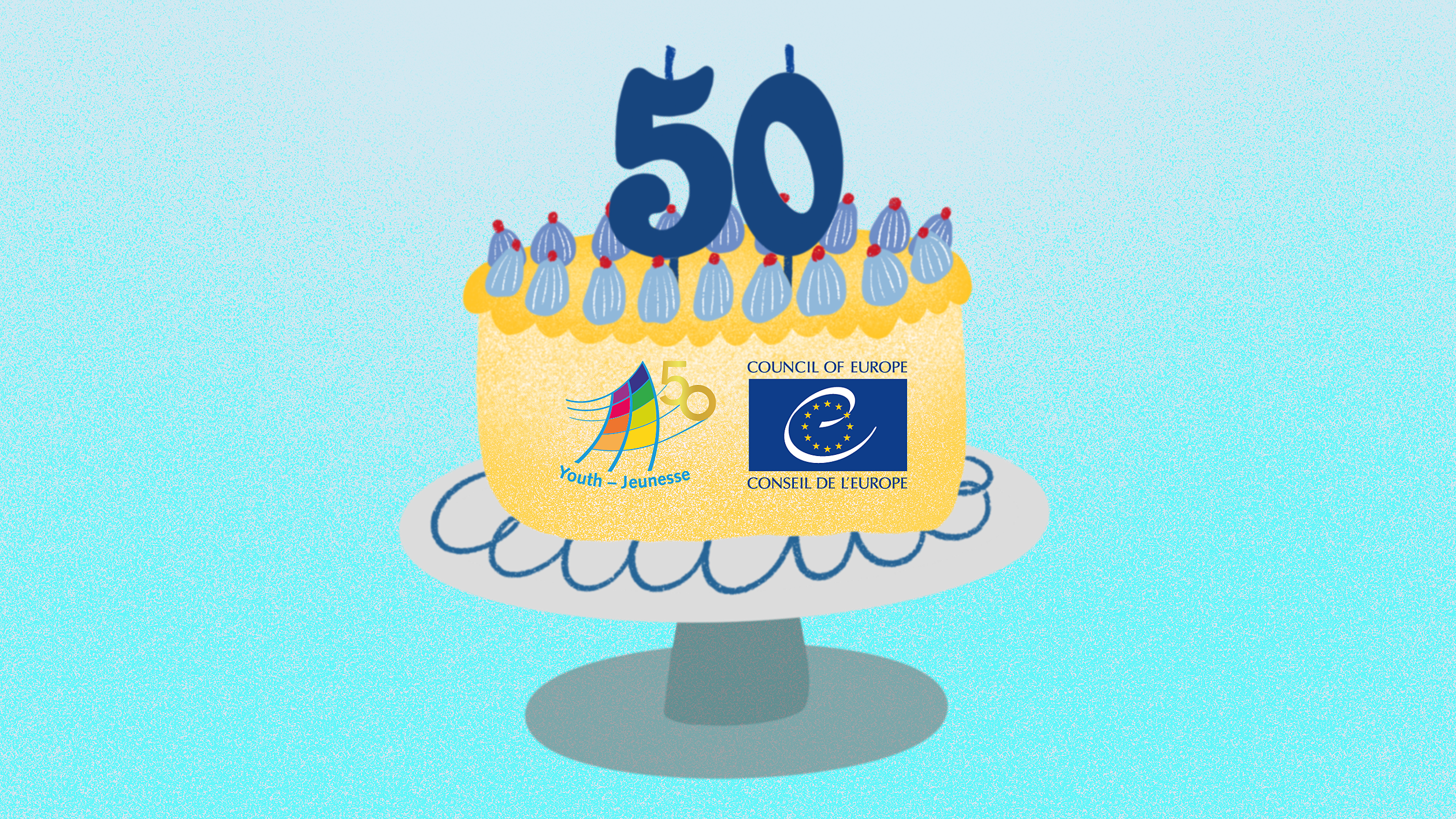
Illustration by Daniela Nunes
50 years of the Council of Europe youth sector
by Mila Lukic
The Council of Europe has always considered young people to be those who continuously challenge the status quo to bring about positive change to European society and promote Council of Europe values of human rights, democracy and the rule of law.
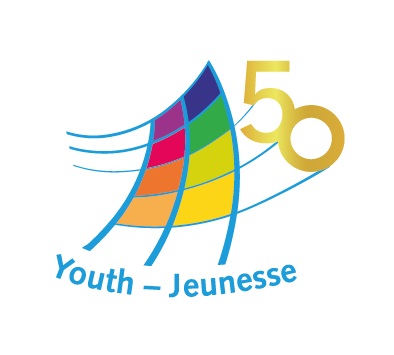
Fifty years of existence indeed bear a lot of fond memories, many accomplishments and milestones, as well as obstacles, challenges and hurdles faced by thousands of (young) people who have once been (or still are) a part of the Council of Europe Youth Department. So, let’s take a journey into the past and reminisce about all that has been achieved over the last half-century.
 Living and breathing democracy
Living and breathing democracy
One of the most important achievements of the Council of Europe was the establishment of a unique example of participatory democracy – the ground breaking co-management system, a space where youth representatives meet with governmental representatives to jointly reflect on young people’s situation and needs in Europe and Council of Europe member states, take common stands on important matters, co-produce youth policies and opinions, and provide recommendations to the Council of Europe Committee of Ministers. But this is so much more than pure space for co-creation and joint work. Co-management enables young European voices to have an equal say, in other words, their word is weighed as much as the voices of governmental representatives. It enables meaningful participation of young people who are consulted and listened to in steering the European youth policy development. By combining the strengths of youth leaders and public authorities, co-management provides an opportunity for exchange and learning, thus advancing not only dialogue between the participants, but also mutual trust and understanding, leading ultimately to better policy making.
Co-management is practised in the Joint Council on Youth (CMJ), composed of the Advisory Council on Youth (CCJ) (30 young representatives of European youth organisations/networks and national youth councils) and the European Steering Committee for Youth (CDEJ) (governmental representatives of Council of Europe members states in charge of youth affairs). Thanks to the dialogue between the CCJ and CDEJ, we can witness democracy being fully realised through the sharing of ideas and opinions, in a spirit of mutual understanding and respect, giving legitimacy to the CMJ decisions.
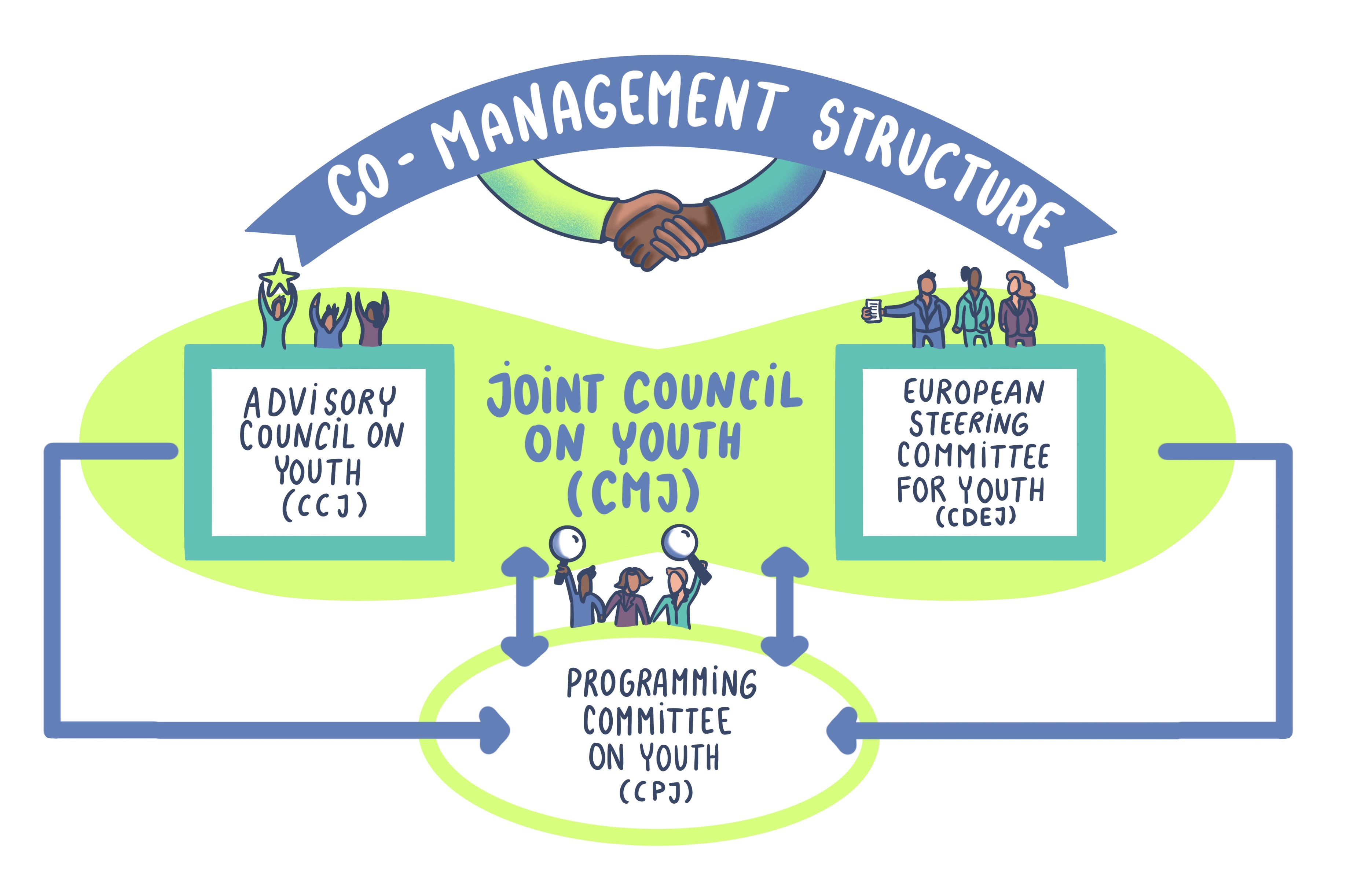
 Texts that make a difference
Texts that make a difference
Speaking of decisions, you are probably wondering what CMJ has done so far, and how that affects you as an individual or helps your youth organisation or public institution in everyday life.
Well, CMJ decisions (adopted by and enforced through the Committee of Ministers) have been shaping European youth policy in many ways, creating a supporting environment for young people to flourish, learn, exchange and constructively criticise. CMJ opinions have addressed many areas relevant to youth – from participation, education, mobility, social inclusion, gender equality, access to fundamental rights, all the way to youth work, digitalisation, climate change and civic spaces. Some of the pioneering recommendations include those concerning the lowering of the age of full legal capacity (CM/Res(72)29), integration of young people into the world of work (CM/Rec(79)3), and youth participation and the future of civil society (CM/Rec(97)3).
With a view to promoting education as the enabler of human rights protection and a defence against the rise of violence, racism, extremism, xenophobia, discrimination and intolerance, the European Charter on Education for Democratic Citizenship and Human Rights Education (CM/Rec(2010)7) was adopted, which recognises the pivotal role youth organisations play in supporting young active citizens and human rights defenders, particularly through non-formal and informal education. With an aim to better promote and ensure access to rights for all young people in Europe, the Committee of Ministers adopted the Recommendation on young people’s access to rights (CM/Rec(2016)7) which puts into focus taking a co-ordinated approach to developing policies to tackle multifaceted identities and the intersectionality of discrimination faced by young people.
Marginalised youth groups have also been at the heart of the Council of Europe to enable their access to fundamental rights, social protection and equal political, economic and social participation. Among others, there are two texts that reflect the needs of youth from disadvantaged neighbourhoods and young refugees, which encourage member states to base their policy making on evidence reflecting the specific needs of these young people. The former, so-called Enter! recommendation for the first time in Council of Europe history brought light to the need for policy responses based on social rights to situations of exclusion, discrimination and violence affecting young people in Europe. The latter recommendation on supporting young refugees in transition to adulthood invites governments to give due consideration to the specific needs and situations of young female and male refugees, who are among the most vulnerable groups, enabling them access to their rights and recognising the role of youth work in building social cohesion and inclusion. This recommendation is part of the Council of Europe's Action Plan on Protecting Refugee and Migrant Children in Europe.
As for more recent recommendations, the one that should be highlighted is the youth work recommendation (CM/Rec(2017)4). This long-awaited milestone recognised the instrumental role that youth work plays in supporting young multipliers and youth organisations in adhering to human rights, democracy and the rule of law, and called upon member states to invest human, financial and other resources into youth work policy and practice, provide an enabling environment and conditions for youth work development, strengthen the role and recognition of youth work on national levels and facilitate intersectoral co-operation between youth work and other sectors. Furthermore, the latest recommendation adopted is on protecting youth civil society and young people (CM/Rec(2022)6), which recalls the changing social and political environment in which (youth) civil society functions, specifically reflecting on obstacles and limitations imposed on youth organisations and youth activists in certain countries in Europe. It recommends that member states “identify and address threats to youth civil society and to ensure that all young people and youth civil society can engage meaningfully with and in democratic political processes”.
Last but not least, in January 2020 the Committee of Ministers adopted the Youth Sector Strategy 2030 CM/Res(2020)2, which represents a broad political roadmap for all Council of Europe member states on implementation of the Youth for Democracy programme in the next decade. It puts forward four priorities: revitalising pluralistic democracy, young people’s access to rights, living together in peaceful and inclusive societies and youth work, aiming to broaden participation of all young people, ensure their rights are exercised and protected, and deepening further youth knowledge and co-operation among all stakeholders.
 Quality and participation at the heart of the Youth Department
Quality and participation at the heart of the Youth Department
Apart from formal documents, different guidelines, tools and approaches have been developed in the Youth Department in order to facilitate the policy-making process, educational activities and dissemination of achieved results. For example, there are standards for quality youth policy development and a self-assessment tool that helps public authorities self-evaluate and improve their policy-making processes.
Moreover, quality is also an important element of all educational activities carried out in the Youth Department and by its beneficiaries. For this purpose, in 2016, the Programming Committee on Youth (CPJ) adopted quality standards in education and the training activities of the Youth Department, which have since been applied in all Council of Europe-supported and EYF-funded activities.
 Money makes youth policy and youth work advance
Money makes youth policy and youth work advance
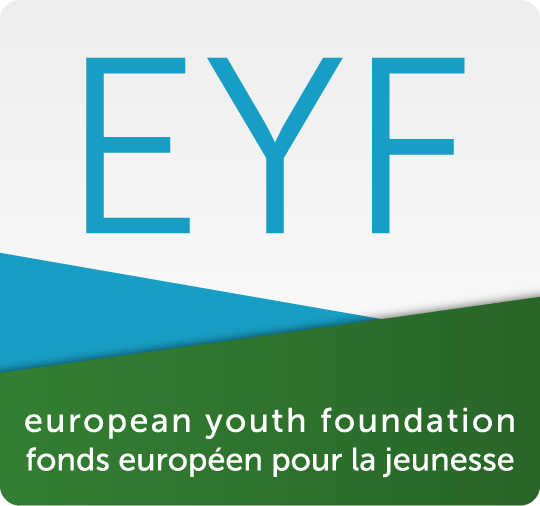
 Partnerships with and for youth
Partnerships with and for youth
Apart from the financial support, the Youth Department is also a place where continuous tailored educational support is provided for young multipliers in co-operation with youth organisations and networks in Europe. This is done through study sessions organised in co-operation with the Youth Department throughout the year. Did you know that thus far hundreds of study sessions have been organised which included more than a few thousand young people? Such activities serve as educational youth seminars and training that offer spaces for fruitful thematic discussions and learning among youth from different realities.
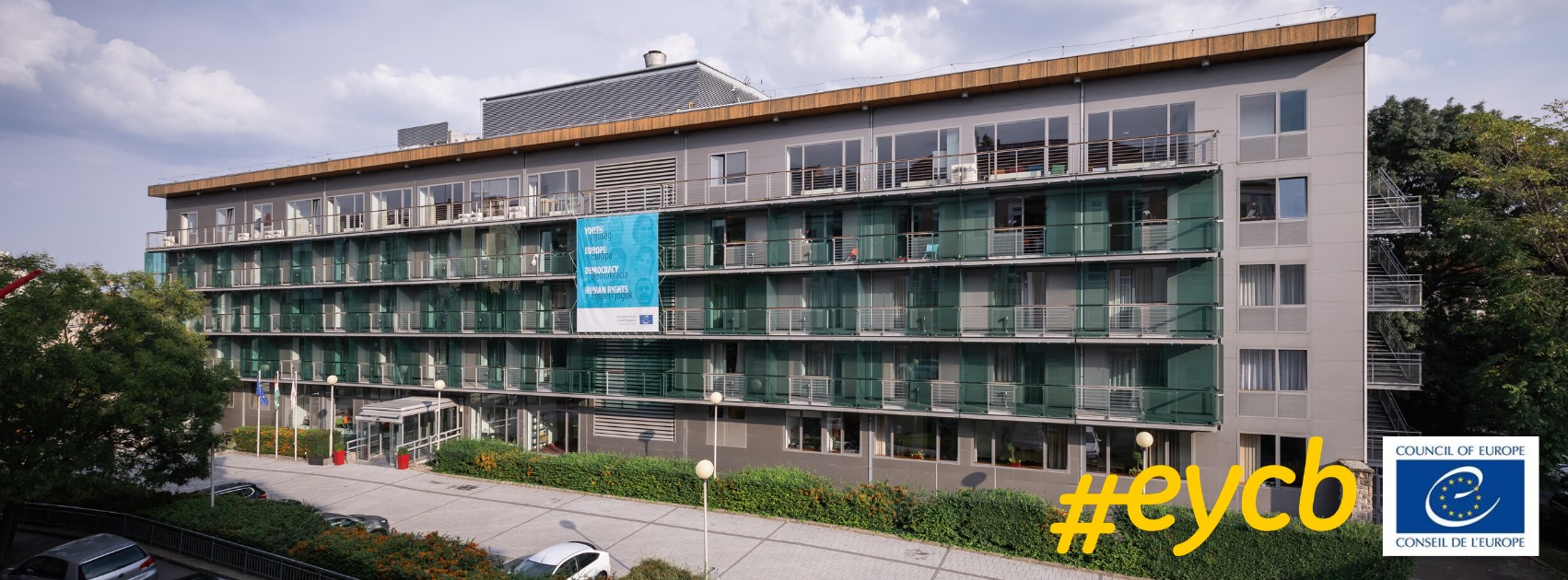
Study sessions, as well as youth seminars, training courses and conferences are mainly organised in the two European Youth Centres in Strasbourg and Budapest, which have been the gathering spaces for young multipliers and youth policy makers since 1972 (in Strasbourg) and 1996 (in Budapest). Every young person who has had the chance to walk into either one of these youth centres has felt the warm-hearted personnel and the cosy interior, which for some newcomers probably felt like a maze until they got used to wandering around the building stumbling upon inspiring quotes on the walls or interesting corners with exhibited projects and practices. Both youth centres play an extraordinary role in supporting young people across Europe to fully benefit from human rights, democracy and the rule of law.
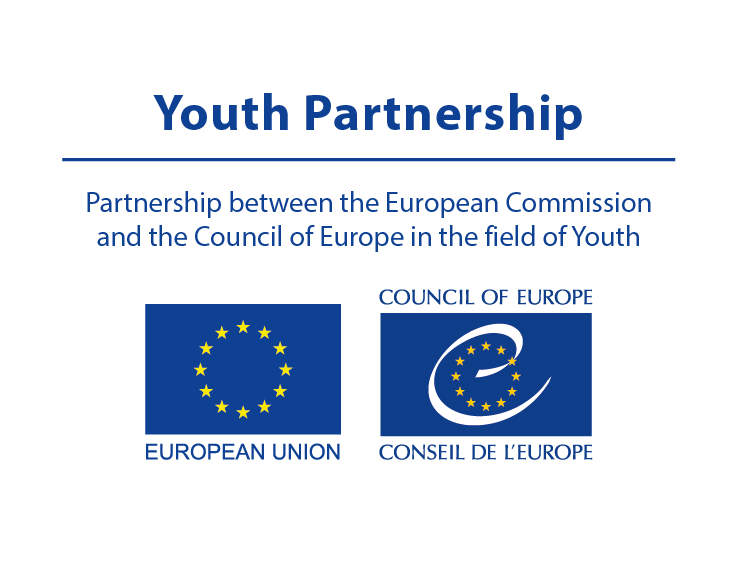
 Campaigning for human rights and democracy
Campaigning for human rights and democracy
Raising awareness, dissemination and outreach play a crucial role in promoting human rights, democracy and the rule of law in the Youth Department. In the past 50 years, we have witnessed several Europe-wide campaigns focusing on different aspects of the Council of Europe’s work. Let’s quickly travel back through time, shall we?

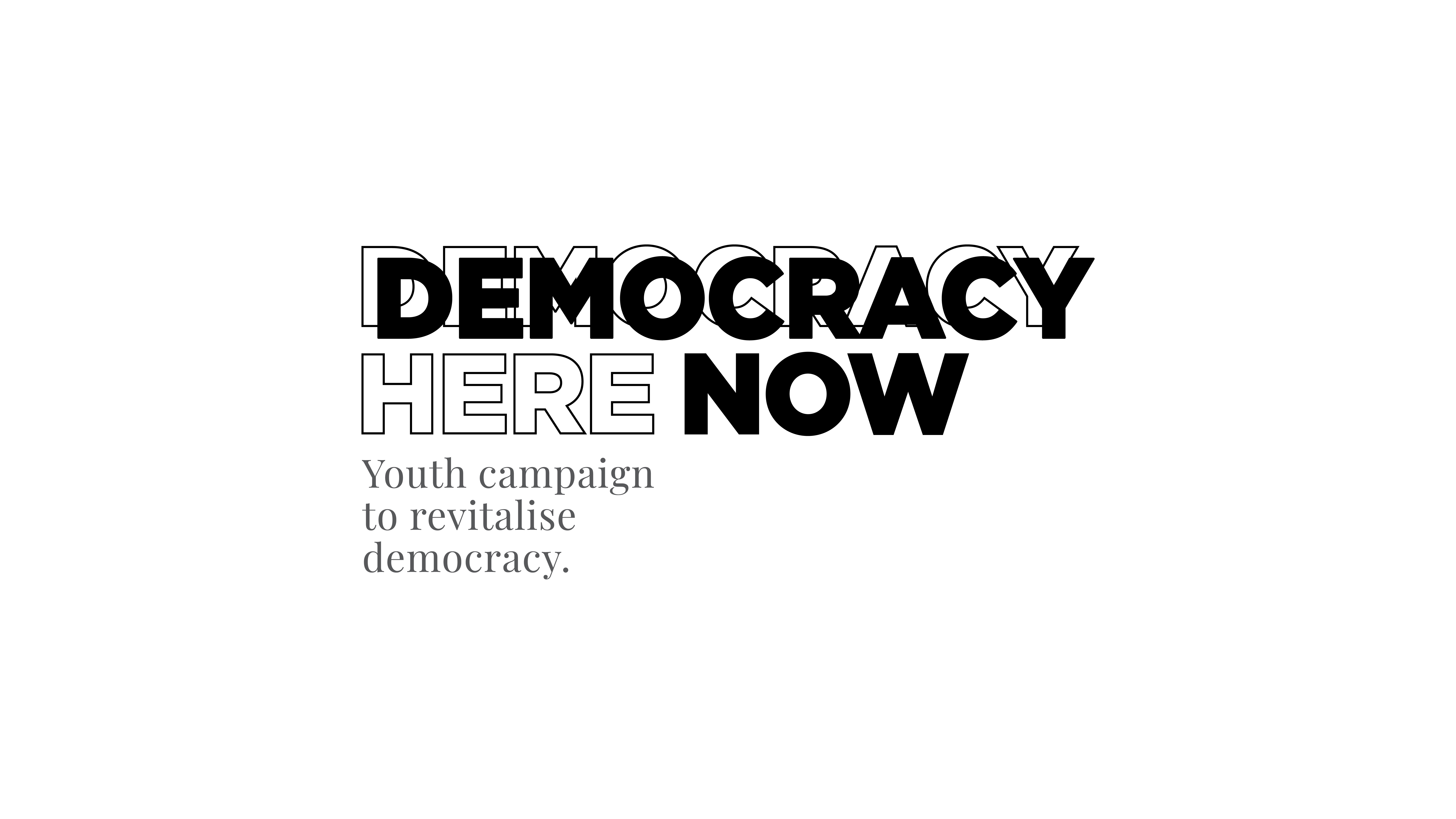
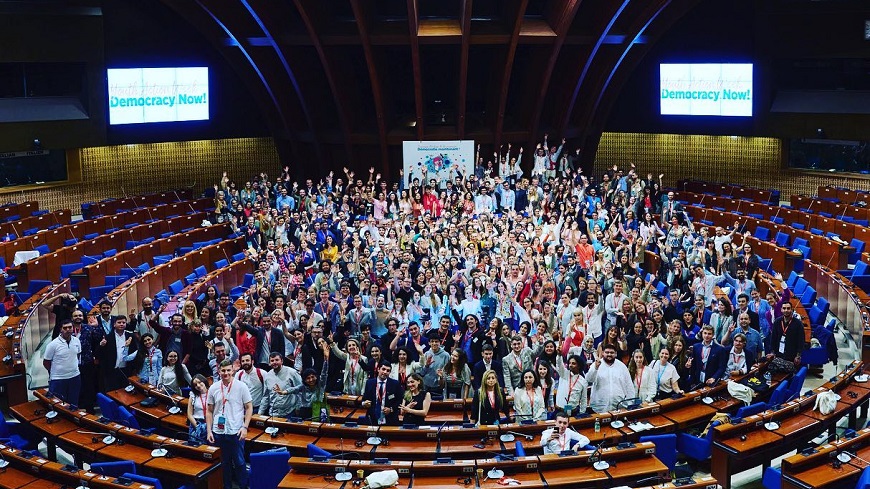
 Creating memories for all young people
Creating memories for all young people
In only 50 years, the Council of Europe has developed many mechanisms and instruments to support young people across Europe, to help youth organisations become more involved in human rights education and education for democratic citizenship, to support youth policy makers to create, implement, monitor and evaluate their youth policy frameworks.
The Youth Department of the Council of Europe has become a place where young people are meaningfully involved in policy making and educational programmes from conceptualisation to evaluation.
The Youth Department of the Council of Europe has become a platform where the needs of young people are thoroughly discussed and adequate programmes responding to such needs are enforced.
The Youth Department of the Council of Europe has become a resource for many young activists who are encouraged to think creatively about youth policy and revitalising democracy.
Thanks to the Youth Department, the youth perspective is brought to the Council of Europe and included in the process of shaping societies in Europe.
So, thank you Youth Department, may you keep on supporting the role of youth in participatory and inclusive youth policy development for at least another 50 years!

Mila is a youth trainer, activist and advocate, deeply passionate about youth participation, intercultural learning, travelling and chocolate.


